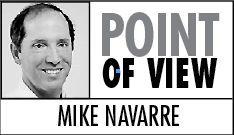W
hy does it make sense to take on Medicaid expansion in these times of fiscal challenges and diminished budgets? Aren’t we supposed to be tightening our belts right about now, boring new holes for the buckle so we can draw them even tighter in years to come? Why would we take money from the feds, with all those strings attached?
It may seem counter-intuitive to commit to expansion in a time of contracting state budgets. Nonetheless, when you dig deeper into the facts, figures and underlying rationale, it makes good sense to move forward with Medicaid expansion.
Many come to the discussion with the core belief that all Alaskan citizens deserve access to medical care, as a basic human need. I agree. I also believe Alaska should participate in Medicaid expansion because it makes good economic sense for our state.
Medicaid expansion is estimated to create as many as 4,000 new jobs in Alaska by 2021, with potential wages to working Alaskans of $1.2 billion over that time period. The potential for new jobs is increasingly important as Alaska deals with job losses as a result of the difficult decisions necessary to address our fiscal problems.
Having served in the Legislature, I know we fight hard for federal dollars to help address many of our state’s needs; we accept federal monies for transportation, the military, education, and jobs programs. All play an important part in Alaska’s overall economy, just as the current Medicaid program – which already relies on significant federal funding – plays an important role in our economy, while providing needed health care to Alaska residents.
Make no mistake, we already spend a tremendous amount on medical care for the uninsured, in many cases on committed costs which cannot be cut. Medicaid expansion would shift a significant portion of these costs to the federal side, saving Alaska millions of dollars in expenses we are already obligated to and now pay entirely with state funds.
One of the most obvious examples is medical care of our prisoners. In FY16 alone, more than $4 million — now spent on medical care of our prisoners — would be shifted to federal funds. We could also reduce state spending for Chronic and Acute Medical Assistance (CAMA) by an estimated $1.5 million in FY 16, by enrolling recipients in Medicaid. All told, savings to the State of Alaska’s general fund will exceed the 10 percent match amount required in 2020.
When we talk about Medicaid expansion, we’re talking about providing benefits to people who are currently falling through the cracks of our changing health care system. According to current data, more than 43 percent of the people who fall within the income requirements for this program are actively working Alaskans, with an additional 29 percent working seasonally. They do not have enough income to afford insurance; their employers don’t provide it; and yet, they don’t currently qualify for assistance.
One way or another, we already pay for our uninsured citizens. Our Alaska hospitals commit millions of dollars a year to uncompensated and charity care — care they are required to provide to everyone who comes through their doors, whether they have the ability to pay or not. The difference is made up, in part, by cost shifting, resulting in higher charges for services and higher insurance premiums.
Among the critiques I’ve heard in discussions on Medicaid expansion is that current Medicaid programs need reforms before we expand Medicaid services in Alaska. Governor Walker’s bill includes a variety of reform measures, including a care management pilot program to reduce unnecessary ER visits, a fraud and abuse control initiative, and tightening eligibility for certain services. Reforms should be — and are — done on a continual basis. Needed reform should not be an excuse for delaying or opposing Medicaid expansion.
Another critique is that federal dollars might disappear, leaving us holding the bag for millions of dollars in new program costs. Governor Walker has received assurances from the federal government that, if federal funds are reduced, Alaska can opt out at any time without penalty. Governor Walker’s bill makes Alaska’s participation contingent on the federal government maintaining at least a 90 percent match.
The decision to expand Medicaid in Alaska — as Alaska sits perched on the thin edge of a financial precipice — makes good sense economically, fiscally and morally.
Mike Navarre is the mayor of the Kenai Peninsula Borough.


